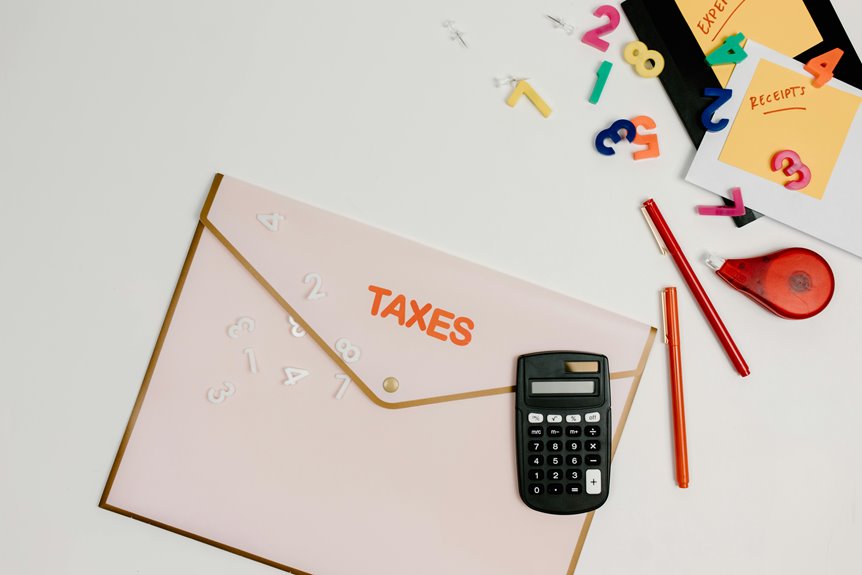Have you ever wondered how organizations can operate without traditional leadership? A Decentralized Autonomous Organization, or DAO, offers a fascinating solution. By leveraging blockchain technology, it relies on community-driven governance and smart contracts to function. Members hold governance tokens that grant them voting rights, shaping the direction of the organization. But what are the implications of this innovative structure? Let’s explore the key components and how they redefine collaboration and decision-making.
Table of Contents
Key Takeaways
- A DAO, or Decentralized Autonomous Organization, operates without traditional leadership, relying on community-driven governance through blockchain technology.
- Members participate in decision-making by proposing ideas and voting on initiatives using governance tokens.
- Smart contracts automate operations and enforce rules, ensuring transparency and security in transactions and decisions.
- All voting results and decisions are recorded on the blockchain, enhancing accountability and community engagement.
- DAOs face challenges like governance conflicts, security vulnerabilities, and legal uncertainties, but they promise to transform traditional decision-making.
Understanding the Concept of a DAO
A DAO, or Decentralized Autonomous Organization, is a new way of organizing and managing a group or project without traditional leadership. Instead of relying on a central authority, you participate in a system where decisions are made collectively by members through smart contracts on a blockchain.
This structure empowers you to have a voice in the governance of the organization. You can propose ideas, vote on initiatives, and contribute to the project’s direction, all while ensuring transparency and security.
DAOs often focus on specific goals, whether that’s funding a project, managing resources, or creating a community. By embracing this model, you’re part of a revolutionary shift towards decentralized collaboration and shared ownership in various fields.
Key Components of a DAO
At the heart of every DAO lies a few key components that enable its functionality and effectiveness.
First, you’ve got the community, which includes members who participate in decision-making and governance. This diverse group drives the DAO’s vision and objectives.
The community is the backbone of a DAO, driving its vision and shaping decision-making through diverse member participation.
Next, there’s a governance token that grants voting rights, allowing members to propose changes or approve initiatives based on their stake in the organization.
Transparency is also essential; you’ll find that all transactions and decisions are recorded on the blockchain, ensuring accountability.
Finally, the DAO’s structure relies on a set of rules or protocols, often laid out in a charter, guiding operations and member interactions.
Together, these components create an environment where collaboration and innovation can thrive.
How DAOs Operate: The Role of Smart Contracts
While many elements contribute to a DAO’s success, smart contracts play an essential role in automating operations and enforcing rules.
These self-executing contracts are coded with specific conditions that trigger actions without needing intermediaries. When you participate in a DAO, you’re relying on smart contracts to handle tasks like fund distribution, voting processes, and membership management.
This automation guarantees transparency and reduces the risk of human error or manipulation. You can trust that the agreement will execute as intended, based on the consensus of the community.
Governance and Decision-Making in DAOs
Governance in DAOs revolves around collective decision-making, ensuring that every member has a voice in shaping the direction of the organization. This democratic approach empowers you to participate actively in key decisions.
Here are four essential elements of governance in DAOs:
- Voting Mechanisms: Members typically use tokens to vote on proposals, making each voice count.
- Proposals: You can submit and discuss proposals, driving innovation and improvement within the organization.
- Transparency: All decisions and voting results are recorded on the blockchain, ensuring accountability.
- Quorum Requirements: Certain DAOs require a minimum number of votes for a decision to be valid, fostering active participation.
This framework not only enhances engagement but also strengthens the community’s commitment to shared goals.
Advantages of Decentralized Autonomous Organizations
Decentralized Autonomous Organizations (DAOs) offer several advantages that stem from their unique structure and governance model.
First, they promote transparency, as all transactions and decisions are recorded on a blockchain, allowing you to verify actions easily.
DAOs enhance transparency by recording all transactions and decisions on a blockchain, ensuring easy verification of actions.
Second, DAOs empower members by giving them equal voting rights, fostering a sense of community and shared responsibility.
You’ll find that they can operate without intermediaries, reducing costs and streamlining processes.
Additionally, DAOs can adapt quickly to changes in the market or community needs due to their flexible governance structure.
This adaptability can lead to innovative solutions and faster decision-making.
Challenges and Risks Associated With DAOS
As you explore DAOs, you’ll encounter several challenges and risks that can impact their effectiveness.
Governance issues can lead to conflicts among members, while security vulnerabilities may expose funds to theft.
Additionally, the legal uncertainties surrounding DAOs can complicate their operations and compliance.
Governance Issues
While DAOs promise a more inclusive approach to decision-making, they face significant governance challenges that can undermine their effectiveness.
Here are some key issues you should be aware of:
- Voter Apathy: Many members mightn’t participate in voting, leading to decisions that don’t reflect the majority’s interests.
- Token Concentration: Power can end up in the hands of a few individuals who hold a large number of tokens, skewing decisions.
- Complexity of Proposals: Members may struggle to understand intricate proposals, resulting in uninformed votes.
- Lack of Accountability: It can be difficult to hold members accountable for their actions, leading to potential conflicts of interest.
Addressing these governance issues is essential for the long-term viability of DAOs.
Security Vulnerabilities
Although DAOs offer innovative governance structures, they aren’t without significant security vulnerabilities that can jeopardize their operations.
One major risk is smart contract bugs, which can lead to exploitable loopholes. If you’re not careful, attackers can manipulate these weaknesses to drain funds or disrupt decision-making processes.
Additionally, DAOs often rely on token-based voting, making them susceptible to manipulation if a single entity acquires a large enough stake.
Phishing attacks targeting participants can also compromise security, allowing unauthorized access to sensitive information.
Finally, the decentralized nature of DAOs can complicate accountability, making it difficult to recover from breaches.
Staying informed and implementing robust security measures is essential if you want to protect your DAO’s integrity and assets.
Legal Uncertainty
Given the rapid evolution of DAOs, traversing the legal landscape can feel like walking through a minefield. You might face several challenges and risks that can complicate your DAO’s operations:
- Regulatory Ambiguity: Laws surrounding DAOs are still evolving, leading to confusion on compliance.
- Liability Issues: Determining who’s responsible for decisions made by a DAO can create legal headaches.
- Tax Implications: The tax treatment of DAO transactions remains unclear, potentially leading to unexpected liabilities.
- Intellectual Property Risks: Protecting your DAO’s creations can be tricky, as existing laws may not apply adequately.
Navigating these uncertainties requires diligence and possibly legal counsel to guarantee your DAO can thrive while minimizing risk.
The Future of DAOs in Digital Governance
As digital governance evolves, decentralized autonomous organizations (DAOs) are poised to play an essential role in shaping how communities and organizations make decisions.
You’ll find that DAOs empower individuals by promoting transparency and collaboration, enabling collective decision-making without traditional hierarchies. With smart contracts automating processes, you can expect faster and more efficient governance structures.
As more people embrace this model, it’s likely that DAOs will influence everything from local community initiatives to global organizations.
DAOs are set to transform decision-making, impacting everything from local initiatives to global organizations.
You’ll witness increased participation as barriers to entry diminish, allowing diverse voices to contribute. However, to harness their full potential, stakeholders must navigate regulatory challenges and develop robust frameworks.
The future of DAOs in digital governance could redefine how you engage with the systems that affect your life.
Frequently Asked Questions
Can Anyone Create a DAO?
Yes, anyone can create a DAO. You just need to understand the basic principles, choose a platform, and define the purpose. With the right tools and community support, you’re ready to launch your own DAO.
How Are Members of a DAO Compensated?
Members of a DAO typically receive compensation through tokens, which can represent voting power or financial rewards. You might earn these tokens by participating in governance, contributing to projects, or providing liquidity to the ecosystem.
What Happens if a Dao’s Smart Contract Is Hacked?
If a DAO’s smart contract gets hacked, you’re at risk of losing funds. It’s vital to guarantee robust security measures are in place. You might need to vote on recovery strategies or updates to the contract.
Are There Any Legal Regulations for DAOS?
You’ll find that legal regulations for DAOs vary by jurisdiction. Some countries are starting to draft legislation, while others remain uncertain. It’s essential to stay informed about evolving laws that could impact your DAO activities.
How Can I Join an Existing DAO?
To join an existing DAO, you’ll need to research and find one that aligns with your interests. Once you’ve chosen, follow their guidelines, participate in discussions, and contribute to the community to get involved.




